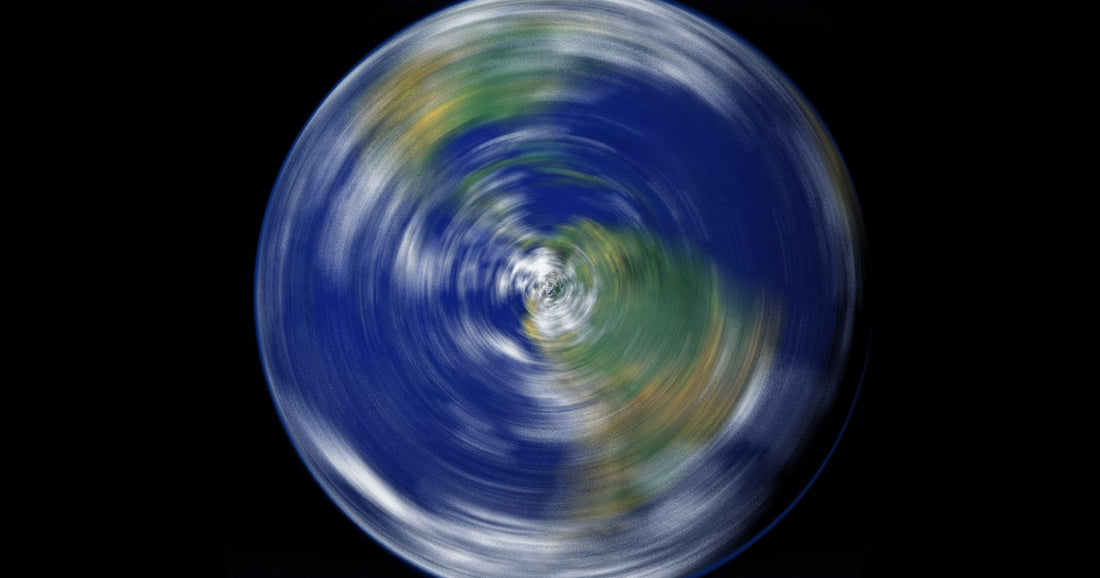
Earth broke the previous record for shortest astronomical day ever recorded 28 times in 2020...
Share
SM: Did you feel that...?
Earth broke the previous record for shortest astronomical day ever recorded 28 times in 2020...
Just when you thought the ill-effects of 2020 were winding down...
Last year was home to the 28 fastest days since 1960.
Why? Is that bad?
Earth completed its revolutions around its axis milliseconds faster than usual, which is fairly common in a single event, but not so common to have 28 days speeding up.
Our planet's rotation varies a fair bit due to variations in atmospheric pressure, wind, ocean currents, and the movement of Earth's core.
But, it's not so common that it doesn't ruin the day of an international timekeeper (that's actually a thing.)
International timekeepers use painfully sensitive atomic clocks to define the Coordinated Universal Time (UTC) that dictates what time each location on Earth sets their clocks.
When the time it takes for Earth to make a full rotation changes from the norm by more than 0.4seconds, these timekeepers will adjust the UTC accordingly.

Image: A dramatic representation of something that's definitely not going to happen.
If you read that and thought "oh, a leap year", congrats.
Historically, Earth has added "leap seconds" to the UTC at either June or December every second year, which brings astronomical time and atomic time back in synch. In 1972, scientists have added leap seconds about every year and a half.
The last addition was New Year's Eve 2016 where one leap second was added at exactly 23 hours, 59 minutes, and 59 seconds.
However...
Recent acceleration of our planet has these scientists chattering about the addition of a negative leap second, meaning a second will be subtracted from the year and not added.
Should you be filling your survival bunker with canned beets and weaponry?
Not just yet.
Subtracting a leap second means the average length of a day is 86,400 seconds, but an astronomical day this year will eventually clock in 0.5 milliseconds shorter. By the end of 2021, we will be lagging by 19 milliseconds in atomic time than the universe.
"It's quite possible that a negative leap second will be needed if the Earth's rotation rate increases further, but it's too early to say if this is likely to happen," said physicist Peter Whibberley of the National Physics Laboratory in the U.K. "There are also international discussions taking place about the future of leap seconds, and it's also possible that the need for a negative leap second might push the decision towards ending leap seconds for good."

Last year was already astronomically faster than usual, and we mean that in the literal sense.
According to Time and Date, our planet broke the previous record for shortest astronomical day in 2005 28 times...
The year 2005's shortest day was July 5th and Earth rotated 1.0516 milliseconds faster than the usual 86,400 seconds.
Last year's shortest day was July 19th, with a rotational time of 1.4602 milliseconds faster than average.
According to the National Institute of Standards and Technology (NIST), leap seconds are a controversial issue with benefits and pitfalls alike. Sure they're useful for keeping astronomy observations are synched with UTC (and timezones by extension), but they can be an aggravation for data-logging software and telecommunication infrastructure.
Some renegade scientists have suggested we let the disparity between astronomical and atomic time widen until the addition of a "leap hour" is added and disruption to the infrastructure is drastically minimised. Meanwhile astronomers can fend for themselves making their own adjustments.
Paris' International Earth Rotation and Reference Systems Service (IERS) will decide the fate of the Earth's milliseconds and whether leap seconds are added or subtracted. And eventually if a leap hour is a viable option.
But as it stands, we have not escaped the year 2020 without reeling from some of it's effects.
Not even for a leap second.
#Space_Aus




